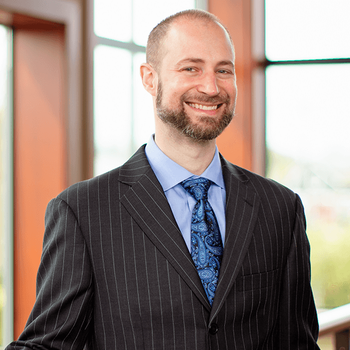Hajdu-Cheney Syndrome Overview
Learn About Hajdu-Cheney Syndrome
Hajdu-Cheney syndrome is a rare disorder that can affect many parts of the body, particularly the bones. Bone loss from the tips of the fingers and toes (acroosteolysis) is a characteristic feature of the condition. The fingers and toes may appear short and rounded, and they may become shorter over time as the bone continues to break down. In people with Hajdu-Cheney syndrome, the fingers are more likely to be affected than the toes. Bone loss in the fingers can interfere with fine motor skills, such as picking up small objects.
Hajdu-Cheney syndrome is associated with variants (also called mutations) in the NOTCH2 gene. This gene provides instructions for making a receptor protein. Other proteins, called ligands, can fit into specific sites on receptor proteins, like a key into a lock. When a ligand binds to the NOTCH2 receptor protein, it triggers a signaling pathway called the NOTCH2 signaling pathway. NOTCH2 signaling is important for the early development of bones and for bone remodeling, a normal process in which old bone is removed and new bone is created to replace it. NOTCH2 signaling also appears to be involved in the development of the heart, kidneys, teeth, and other parts of the body.
Although Hajdu-Cheney syndrome is a rare disease, its exact prevalence is unknown. Fewer than 100 affected individuals have been described in the medical literature.
Hajdu-Cheney syndrome is inherited in an autosomal dominant pattern, which means one copy of the altered gene in each cell is sufficient to cause the disorder. Many cases of this condition result from a new (de novo) variant in the gene that occurs during the formation of reproductive cells (eggs or sperm) in an affected individual's parent or during early embryonic development. These affected individuals typically have no history of the disorder in their family.
Summit Orthopedics
Michael Freehill, M.D., is an orthopedic surgeon at Summit Orthopedics specializing in the surgical and nonsurgical care of the shoulder, with a special interest in adult joint reconstruction, joint replacement, sports-related injuries, and arthroscopic surgery. He serves patients in the Minneapolis St. Paul metro area. Dr. Freehill has 20-plus years of experience and is a frequent recipient of the Top Doctor designation in Mpls.St.Paul Magazine. He speaks both nationally and internationally, has authored numerous articles in professional publications, and has served as a course instructor for dozens of conferences. He completed his shoulder, elbow, and sports medicine fellowship at Columbia-Presbyterian Medical Center in New York. Dr. Freehill is rated as an Advanced provider by MediFind in the treatment of Hajdu-Cheney Syndrome. His top areas of expertise are Osteoarthritis, Frozen Shoulder, Osteolysis Syndrome Recessive, and Skeletal-Extraskeletal Angiomatosis.
Proliance Surgeons
Matthew Jenkins, MD, is fellowship trained in shoulder and elbow surgery. He treats conditions of the shoulder and elbow with the most advanced surgical techniques, including minimally invasive and arthroscopic procedures, as well as shoulder replacements, rotator cuff repair and reconstruction, and fracture repair.He believes in taking time to educate his patients on their diagnosis and the cause of their shoulder and elbow problems to help them make informed decisions about their treatment. By keeping current with the newest techniques and advances, he offers leading edge treatments to get patients back in action as soon as possible.Dr. Jenkins enjoys a wide variety of outdoor sports and activities including rock climbing, alpine skiing, kayaking, fishing, mountaineering and backpacking. Dr. Jenkins is rated as an Advanced provider by MediFind in the treatment of Hajdu-Cheney Syndrome. His top areas of expertise are Tendinitis, Frozen Shoulder, Hajdu-Cheney Syndrome, Gorham's Disease, and Hip Replacement.
Summit Orthopedics
Mark LaBelle, M.D., is an orthopedic sports medicine surgeon at Summit Orthopedics specializing in knee and shoulder care, serving patients in the Minneapolis St. Paul metro area. He completed his sports medicine fellowship at the University of Utah Department of Orthopaedic Surgery, focusing on shoulder arthroplasty and advanced arthroscopic techniques. “Although we do treat high-level athletes in sports medicine, many of our patients are regular, active people looking to meet their recreational goals without pain and disability,” Dr. LaBelle says. “My goal is not just to treat a condition that I see on an MRI or X-ray, but also to understand what patients want to be able to do without pain, so that I can help them achieve those goals.”. Dr. Labelle is rated as an Advanced provider by MediFind in the treatment of Hajdu-Cheney Syndrome. His top areas of expertise are Tendinitis, Bursitis, Tenosynovitis, Hip Replacement, and Endoscopy.
Summary: This study will test an investigational drug called AZD1390 in combination with radiation therapy for the treatment of brain tumors. This is the first time AZD1390 is being given to patients. This study will test safety, tolerability and PK (how the drug is absorbed, distributed and eliminated) of ascending doses of AZD1390 in combination with distinct regimens of radiation therapy
Summary: The study will collect clinical information from patients with FD and allow them to give blood to help develop biological markers of the disease to aid diagnosis and treatment. This is a non-invasive, non-interventional, observation study that poses only minimal risk for participants. The study will document the clinical features of patients with FD overtime by storing their routine clinical test ...
Published Date: December 15, 2025
Published By: National Institutes of Health


